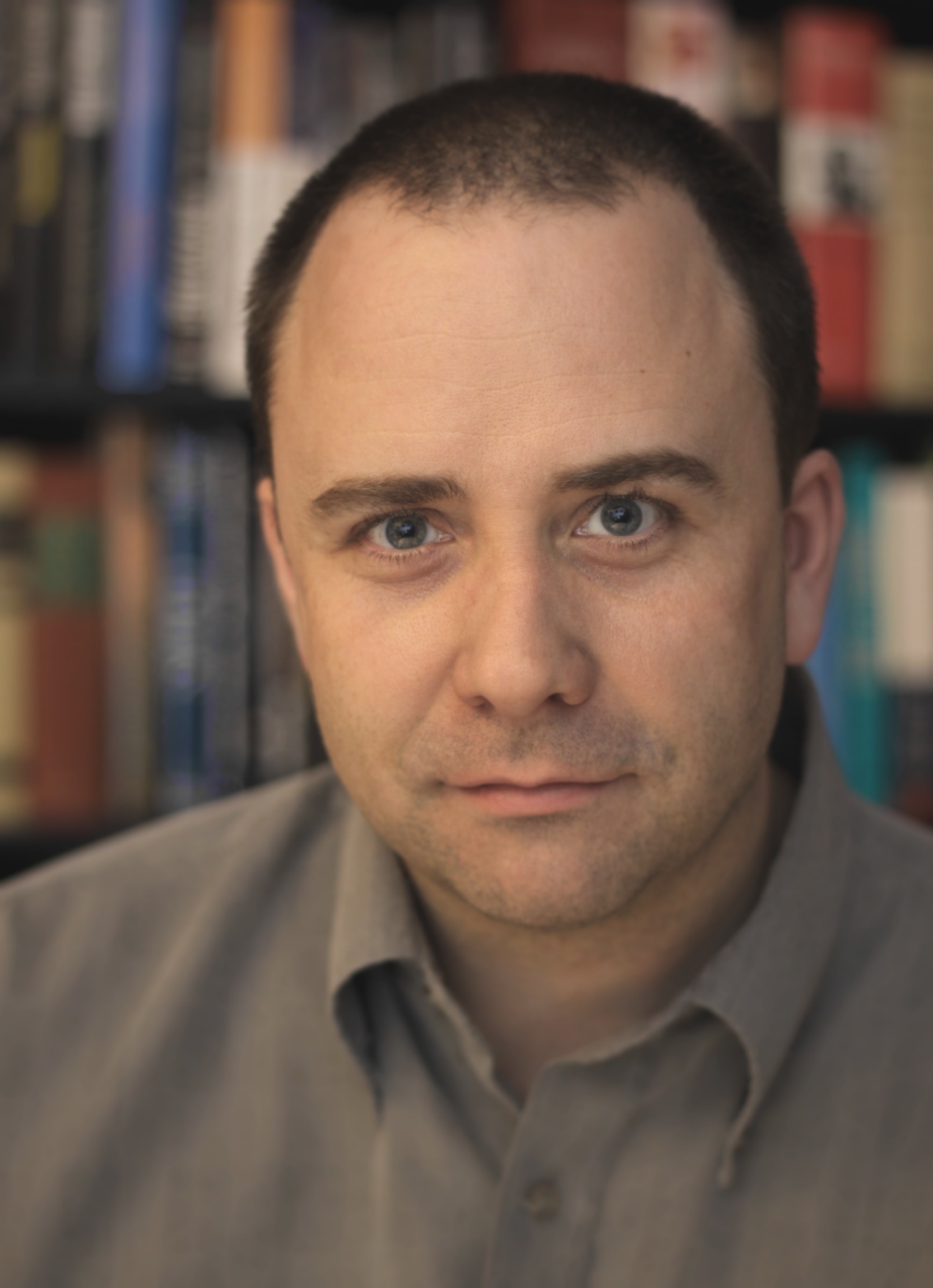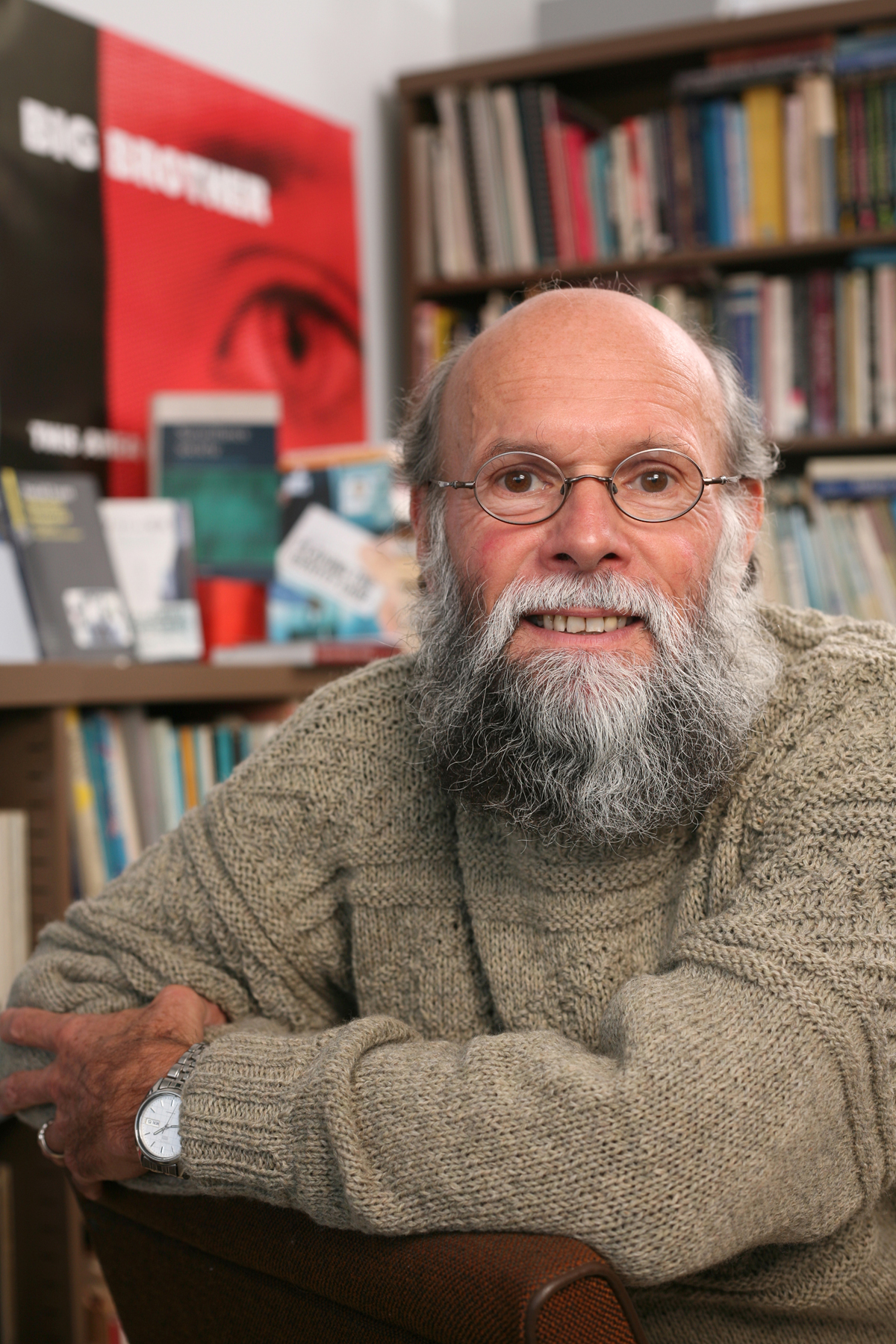 Dr. Wade Deisman teaches courses in policing, security and intelligence at Kwantlen Polytechnic University in British Columbia. Prior to moving to the lower mainland, Dr. Deisman worked as a full-time faculty member in the Department of Criminology at the University of Ottawa, and also taught courses in Sociology and Communications. Dr. Deisman studied at the University of Alberta (B.A.), Dalhousie University (M.A.), and Carleton University (Ph.D.). Before completing his Ph.D. he was involved with the Mayor’s Task Force on Safer Cities in Edmonton, did research for the Atlantic Institute of Criminology in Halifax, and worked with Law Commission of Canada in Ottawa.
Dr. Wade Deisman teaches courses in policing, security and intelligence at Kwantlen Polytechnic University in British Columbia. Prior to moving to the lower mainland, Dr. Deisman worked as a full-time faculty member in the Department of Criminology at the University of Ottawa, and also taught courses in Sociology and Communications. Dr. Deisman studied at the University of Alberta (B.A.), Dalhousie University (M.A.), and Carleton University (Ph.D.). Before completing his Ph.D. he was involved with the Mayor’s Task Force on Safer Cities in Edmonton, did research for the Atlantic Institute of Criminology in Halifax, and worked with Law Commission of Canada in Ottawa.
Professor Deisman’s research interests range from an fascination with all things theoretical to a more substantive focus on terrorism and security, and policing the Internet. Since 2004, Dr. Deisman has been the Director of the Ottawa-based National Security Working Group (NSWG). He has conducted research for the RCMP and the Privacy Commissioner of Canada, as well as developing web-based learning materials devoted to the policing and crime prevention for Pearson Education. Dr. Deisman is passionate teacher, a frequent media commentator, and an ardent proponent of community-oriented forms of education and intellectual engagement.
 Aaron Doyle is an Associate Professor in the Department of Sociology and Anthropology at Carleton University, where he has been based since 2002. His main research and teaching interests concern how major social institutions like the mass media, the criminal justice system and insurance organizations deal with risk through surveillance and various other means, and the security and insecurity that results. He has published four books and numerous papers on those themes.
Aaron Doyle is an Associate Professor in the Department of Sociology and Anthropology at Carleton University, where he has been based since 2002. His main research and teaching interests concern how major social institutions like the mass media, the criminal justice system and insurance organizations deal with risk through surveillance and various other means, and the security and insecurity that results. He has published four books and numerous papers on those themes.
 Laura Huey is an Assistant Professor of Sociology at the University of Western Ontario. She is the author of several articles on issues related to surveillance and counter-surveillance, and is a co-editor of a forthcoming volume of Surveillance & Society that examines the possibilities of resistance (with Luis Fernandez). Her research interests also include policing,victimization of the homeless, cultural criminology and urban sociology. Her book, Negotiating Demands: The Politics of Skid Row Policing in Edinburgh, San Francisco and Vancouver (UTP, 2007), represents an intersection of several of her theoretical and research interests.
Laura Huey is an Assistant Professor of Sociology at the University of Western Ontario. She is the author of several articles on issues related to surveillance and counter-surveillance, and is a co-editor of a forthcoming volume of Surveillance & Society that examines the possibilities of resistance (with Luis Fernandez). Her research interests also include policing,victimization of the homeless, cultural criminology and urban sociology. Her book, Negotiating Demands: The Politics of Skid Row Policing in Edinburgh, San Francisco and Vancouver (UTP, 2007), represents an intersection of several of her theoretical and research interests.
 Stéphane Leman-Langlois received his PhD in Criminology from the University of Toronto in 2000 and is associate professor of Criminology at the University of Montréal’s School of Criminology. He is a member of the International Centre for Comparative Criminology (ICCC) and has worked on crimes against humanity, policing, technologies, terrorism and cybercrime. His concerns include the social construction of (in)security and the symbolic aspects of technology in the production of security and insecurity.
Stéphane Leman-Langlois received his PhD in Criminology from the University of Toronto in 2000 and is associate professor of Criminology at the University of Montréal’s School of Criminology. He is a member of the International Centre for Comparative Criminology (ICCC) and has worked on crimes against humanity, policing, technologies, terrorism and cybercrime. His concerns include the social construction of (in)security and the symbolic aspects of technology in the production of security and insecurity.
His most recent book is Technocrime: Technology, Crime and Social Control (Willan Publishing, 2008). His research interests include interconnections of IT and other critical infrastructures (CI), especially the way they are being restructured by current counter-terrorism policy, as well as the use of surveillance technologies in various spaces, including videosurveillance, biometrics and identification devices, and their impact on users’ perception of personal security, deviance and crime.
Randy Lippert is Associate Professor of Criminology at the University of Windsor. He specializes in socio-legal studies and the sociology of governance. His research interests are in the emergence and workings of camera surveillance in private and quasi-public urban spaces; camera surveillance governance, including ‘fair information’ practices required by privacy legislation; and how camera (or CCTV) images come to be used by various public and private institutions as well as their unintended effects. An overriding interest is in how camera surveillance interfaces with various forms of law in urban realms. His current project funded by the Social Sciences and Humanities Research Council of Canada, entitled ‘The New Urban Governance and Security’, focuses on camera surveillance arrangements primarily in cities in Ontario and British Columbia, though one current study also examines uses of CCTV images in Australia and the United Kingdom. He currently supervises two graduate students conducting research related to camera surveillance.
 David Lyon, FRSC, is the Principal Investigator of the New Transparency Project and Director of the Surveillance Studies Centre. He is also Queen's Research Chair in Sociology and holds a Killam Research Fellowship 2008-2010. Professor Lyon has been working on surveillance issues since the 1980s, when he discussed surveillance as one of the key issues of information-based societies in The Information Society: Issues and Illusions (Polity 1988). Since then he has been involved in many debates over information politics and policy in Canada and around the world as a result of his research and publications including The Electronic Eye (1994), Surveillance Society (2001) and Surveillance after September 11 (Polity 2003). He is a founding editor of the e-journal Surveillance & Society and has particular research interests in national ID cards, aviation security and surveillance and in promoting the cross-disciplinary and international study of surveillance.
David Lyon, FRSC, is the Principal Investigator of the New Transparency Project and Director of the Surveillance Studies Centre. He is also Queen's Research Chair in Sociology and holds a Killam Research Fellowship 2008-2010. Professor Lyon has been working on surveillance issues since the 1980s, when he discussed surveillance as one of the key issues of information-based societies in The Information Society: Issues and Illusions (Polity 1988). Since then he has been involved in many debates over information politics and policy in Canada and around the world as a result of his research and publications including The Electronic Eye (1994), Surveillance Society (2001) and Surveillance after September 11 (Polity 2003). He is a founding editor of the e-journal Surveillance & Society and has particular research interests in national ID cards, aviation security and surveillance and in promoting the cross-disciplinary and international study of surveillance.
Jason Pridmore completed his PhD in Sociology at Queen's University in 2008. His dissertation work focused on the use of loyalty cards as a form of consumer surveillance. Jason was a post-doctoral fellow with The Surveillance Project (now the Surveillance Studies Centre) overseeing work on the Surveillance Camera Awareness Network report on camera surveillance in Canada until January, 2009. He is currently a senior researcher with the DigIdeas project in Infonomics and New Media department at Zuyd University in the Netherlands.
 Kevin Walby is an Associate Professor and Chancellor's Research Chair in the Department of Criminal Justice at University of Winnipeg. He completed his doctoral dissertation under Aaron Doyle at Carleton University (2005–2010). His dissertation research was awarded the Governor General’s Medal. Prior to joining the Department of Criminal Justice in 2013, Walby was Assistant Professor in the Department of Sociology at University of Victoria, a SSHRC Post-Doctoral Fellow at the University of Toronto, Centre of Criminology, and a lecturer at the Institute of Criminology and Criminal Justice at Carleton University. He is the prisoners’ struggles editor for the peer reviewed Journal of Prisoners on Prisons (JPP), published by University of Ottawa Press. For the website, see: http://www.jpp.org
Kevin Walby is an Associate Professor and Chancellor's Research Chair in the Department of Criminal Justice at University of Winnipeg. He completed his doctoral dissertation under Aaron Doyle at Carleton University (2005–2010). His dissertation research was awarded the Governor General’s Medal. Prior to joining the Department of Criminal Justice in 2013, Walby was Assistant Professor in the Department of Sociology at University of Victoria, a SSHRC Post-Doctoral Fellow at the University of Toronto, Centre of Criminology, and a lecturer at the Institute of Criminology and Criminal Justice at Carleton University. He is the prisoners’ struggles editor for the peer reviewed Journal of Prisoners on Prisons (JPP), published by University of Ottawa Press. For the website, see: http://www.jpp.org
 Jennifer R. Whitson is a Sociology PhD student at Carleton University. She holds a Canada Graduate Scholarship and was co-editor of the 2005 special double volume of the journal Surveillance and Society on 'Doing Surveillance Studies'. Her current research interests include digital identity management, surveillance and governance in online domains, identity theft, and software development processes. Her most recent work includes a chapter, co-authored with Aaron Doyle, on virtual world governance in Stéphane Leman-Langlois' edited collection, Technocrime, and an article on identity theft, co-authored with Kevin Haggerty, in the November 2008 issue of Economy & Society.
Jennifer R. Whitson is a Sociology PhD student at Carleton University. She holds a Canada Graduate Scholarship and was co-editor of the 2005 special double volume of the journal Surveillance and Society on 'Doing Surveillance Studies'. Her current research interests include digital identity management, surveillance and governance in online domains, identity theft, and software development processes. Her most recent work includes a chapter, co-authored with Aaron Doyle, on virtual world governance in Stéphane Leman-Langlois' edited collection, Technocrime, and an article on identity theft, co-authored with Kevin Haggerty, in the November 2008 issue of Economy & Society.